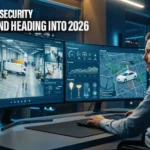In recent years, the importance of residential security guards has become increasingly evident in neighborhoods across Australia. Whether in gated communities or apartment complexes, security guards play a pivotal role in maintaining the peace and safety of residents. But their contributions extend beyond mere crime prevention — they foster community relationships and enhance the overall quality of life in these areas.
Crime Prevention and Deterrence
The primary responsibility of residential security guards is to deter crime. Their visible presence serves as a deterrent to potential criminals, reducing the likelihood of theft, vandalism, or other criminal activities. Trained security personnel also patrol areas, monitor surveillance cameras, and conduct random inspections to ensure that unauthorized individuals do not enter the premises. This proactive approach has been proven to significantly reduce crime rates in residential neighborhoods.
Building Strong Community Relationships
Security guards often form strong bonds with the residents they protect. By engaging with the community and providing a sense of security, they create a more cohesive and connected environment. Residents feel safer knowing they have trusted professionals looking out for their well-being, and this mutual trust fosters stronger relationships within the community.
Enhancing Overall Neighborhood Safety
Beyond just responding to incidents, security guards contribute to creating a safer environment through preventative measures. Regular patrols, monitoring entry and exit points, and managing guest access are just some of the ways they ensure a secure neighborhood. In many cases, they work hand-in-hand with law enforcement to address any significant threats or emergencies
The Future of Residential Security Guards
With advances in technology, security guards are becoming more equipped than ever to protect communities. Mobile devices, real-time reporting, and access to live surveillance feeds enable them to respond swiftly to any incident. However, their human presence remains irreplaceable — they provide a personal touch that technology cannot replicate.





